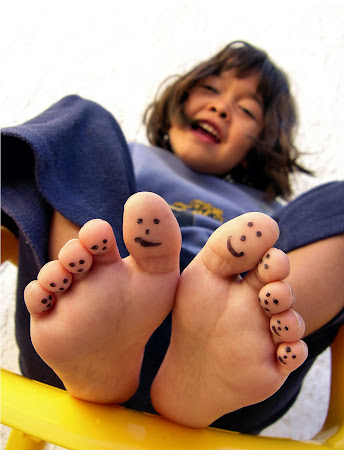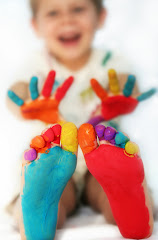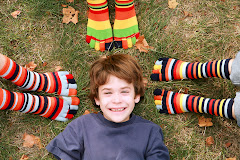Tuesday, June 30, 2009
Nationwide Children's Hospital Specialty Areas
Cardiology – heart
Child and adolescent psychiatry
Clinical and laboratory immunology
Critical care medicine – intensive care
Dermatology – skin
Developmental-behavioral pediatrics
Emergency medicine
Endocrinology – glands
Gastroenterology – digestive system
Hematology-oncology – blood, cancer
Infectious disease
Medical toxicology – poisons, toxins
Neonatal-perinatal medicine – newborns
Nephrology – kidneys
Neurodevelopmental disabilities – nervous system/brain
Otolaryngology – ear, nose and throat
Pathology – study of disease
Pediatric surgery
Pulmonology – lungs
Radiology
Rehabilitation medicine
Rheumatology – joints and connective tissue
Sports medicine
Monday, June 29, 2009
Nationwide Children's Hospital Does Its Research!
Adolescent medicine
Cardiology – heart
Child and adolescent psychiatry
Clinical and laboratory immunology
Critical care medicine
Dermatology – skin
Developmental-behavioral pediatrics
Emergency medicine/traumatic injury
Endocrinology – glands
Gastroenterology – digestive system
Genetics/genomics
Hematology/oncology – blood, cancer
Immunology/vaccines
Infectious disease/virology
Medical toxicology – poisons, toxins
Neonatal-perinatal medicine – newborns
Nephrology – kidneys
Neurodevelopmental disabilities – nervous system/brain
Obesity/diabetes
Otolaryngology – ear, nose and throat
Pathology – study of disease
Pediatric surgery
Pulmonology – lungs, asthma, allergies
Radiology
Rehabilitation medicine
Rheumatology – joints and connective tissue
Sports medicine
Clinical applications of research projects include vaccines for Human Immunodeficiency Virus (AIDS), Hepatitis C and otitis media.
Molecular Oncology is developing new ways to detect and treat cancer as well as study genes that control cancer cells.
Researchers in molecular medicine are working on ways to place the correct gene into patients who have the defective gene.
Human and Molecular Genetics is studying how certain childhood diseases are inherited by deciphering specific sequences of DNA.
Vascular and Cell Biology study chemicals that send "messages" to specific cells and cause them to react in a predetermined way.
Friday, June 26, 2009
Camps for Kids and Parents
Camp Berry for Diabetic Children
Aug. 22-24, 2009
http://www.daily-diabetic.com/50226711/register_for_the_greater_northwest_ohio_diabetes_camp.php
Myelo Fall Getaway - Weekend camp for patients ages eight and older who are followed through the Myelomeningocele (spina bifida) program
Contact: Chris Glaser614-722-6341
Rehabilitation Camp - Two-day camp for current and former rehabilitation patients
Contact: Karen Principe614-722-6556
Heart Camp - Weekend camp for cardiology/thoracic surgery patients ages seven to 18
Contact: Holly Miller-Tate614-722-2530
Trailblazers Camp - Open for severely emotionally disturbed Behavioral Health Program clients ages 11 to 14
Contact: Kim Davis614-221-9922
Heme Camp - Weekend camp for current and former hematology/oncology patients ages five to 18
Contact: Carol Jacob614-722-3554
Rheumatology Weekend Retreat - Camping retreat sponsored with the Arthritis Foundation for youth ages nine to 17 with pediatric rheumatic disease
Contact: Karla Jones614-722-5525
Monday, June 22, 2009
Interesting...

http://www.boingboing.net/2006/10/13/resizable-kids-shoes.html
Thursday, June 18, 2009
Summer Fun
Creative and artistic are not the same thing. Creativity is an approach to life. Creative thinkers know that problems have many different solutions. When they encounter an obstacle, they find a way around rather than giving up. They have to be willing to take risks as they learn new skills. These are important life skills that need to be encouraged in children.
Summer activities, children's crafts and science projects give children the opportunity to learn and practice these skills. Even if they follow a project guide exactly, they will still to make decisions about shades of colors and where to place items. Once they are familiar with the project, most children will want to make it again. That is when they get really creative. First the colors change, then the shapes, and suddenly it is a new project from their own imagination.
Creative projects encourage children to find the resources to make what they want, rather than opening up a box that has all the supplies in one place. The first project in the weekly project list (see below) uses an old knee-hi or pair of pantyhose. What if none are available? Should the children wait until someone else finds all the ‘right’ materials. No, have them start thinking about what they could substitute. Would an old sock work? How about a dish cloth? It is fun to sit back and watch children solve their own problems.
These Summer Activities encourage children to work with a wide variety of materials. One of the best things about summer projects is that they can be done outside. Less mess to clean up!
Check out the following website for activity ideas: http://www.creativekidsathome.com/summerkidsactivities.html
Monday, June 15, 2009
Dr. Vail!
A wealth of information.
Tuesday, June 9, 2009
CHECK IT OUT!
On a typical weekday, more than 500,000 people visit KidsHealth. One of the things that makes KidsHealth special is that it's really three sites in one: with sections for parents, for kids, and for teens.
KidsHealth is more than just the facts about health. As part of The Nemours Foundation's Center for Children's Health Media, KidsHealth also provides families with perspective, advice, and comfort about a wide range of physical, emotional, and behavioral issues that affect children and teens.
http://kidshealth.org/kid/
Wednesday, June 3, 2009
Monday, June 1, 2009
Exams of the feet and ankles ensure that your child's bones are growing correctly. Your doctor can also make sure that your child is walking right. This helps prevent some future foot problems. And if a problem does arise, it can be handled early—when it is easiest to treat.
When Foot Care Is Needed:
During a foot exam, the doctor will watch your toddler walk. If a gait problem exists, the doctor works to identify its cause.
- To help with severe flat feet, special shoes or orthoses (custom-made shoe inserts) may be prescribed.
- To correct mild toeing-in, your toddler may need to sit in a different position while playing or watching TV.
- If your child's feet turn in or out a lot, corrective shoes, splints, or night braces may be prescribed. Wearing these devices can help reposition the foot as it grows.
Your Child`s Active Feet:
The foot`s bone structure is pretty well formed by the time your child reaches age 7 or 8. But if a growth plate (the area where bone growth begins) is injured, the damaged plate may cause the bone to grow oddly. With a doctor's care, however, the risk of future bone problems is reduced.
When to Call the Doctor:
If an injury is mild, your child probably will not remember it for very long. But if your child keeps complaining of pain, have the injury checked by a doctor. Also, call the doctor anytime an injury causes serious swelling, localized tenderness, limping, or ongoing night pains.
Treating an Injury:
If a bone or growth plate is damaged, your child may need to use crutches to take weight off the injury as it heals. In the case of fracture, a cast, splint, or brace may be needed to hold the bone in place during healing.
Happy Feet...

= Happy Kids...

= Happy Family!





